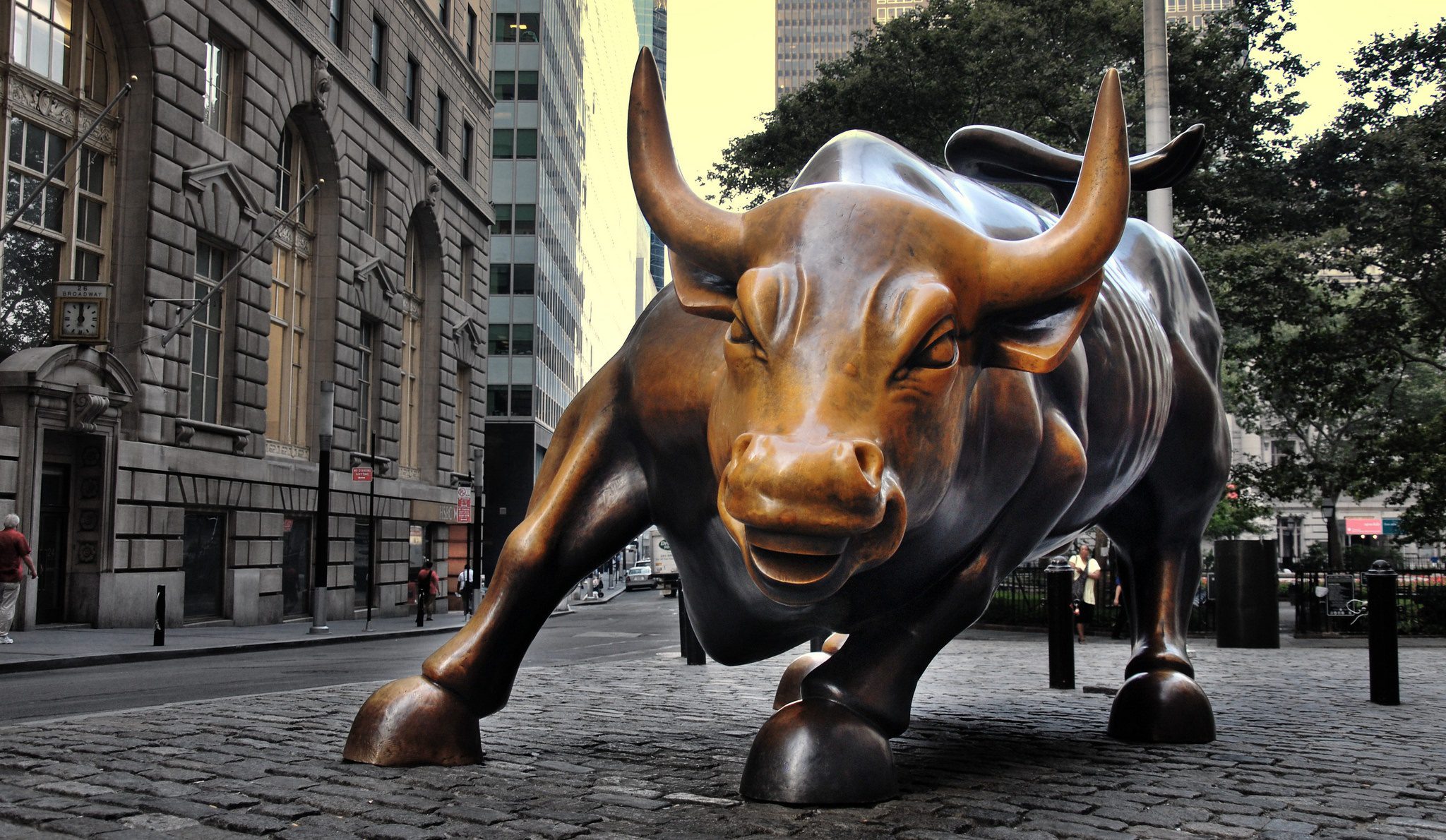
17 Aug Rich is Better than Poor: Unlearning Our Own Stereotypes

Is it true that rich is better than poor? Is spending better than saving? Is a bull market better than a bear market? The Charging Bull is a specifically financial symbol of the “strength and power of the American people” according to its sculptor. A “bull” market is considered strong and powerful because it encourages spending. This sculpture is famously planted near Wall Street, near the New York Stock Exchange. Copyright-free image and excellent notes by Sam valadi on Flikr, via Creative Commons Search.
Rich is Better Than Poor
Whose idea is this? Yours? Mine?
When you hear, “rich is better than poor,” what do you think?
What about when you hear “being rich is better than being poor”?
Do you agree? It’s ok if you do. It’s ok if part of you does, and another part rebels. Just notice what you think.
Spending is Better Than Saving
A “bull” market is one that encourages spending. Spending is what makes America great–right? I think it’s ironic this sculpture is called the “charging” bull, because it sounds like the bull is racking up debt on his charge cards. This is what many of us mean by “spending”–we mean “charging.”
On this count, I’m pretty unequivocal and it doesn’t matter what you think 🙂 Although a small amount of carefully managed debt can be strategic (see my insurance story in the next paragraph), for the most part, debt is bondage. Spending money we have is fine as long as we are saving and giving some away. Spending money we don’t have is addictive–and often an addiction.
I just got notice from my car insurance company that my rates went up when I moved because of my “adverse” credit rating. My adverse credit rating is entirely due to not my not having “enough” debt! Now that is some charging bull!
Bull is Better than Bear
I learned this from living with an investor (who just happened to be my spiritual friend, first, and then my partner): the market goes up, and it goes down. You can try to game it, but it’s a lot like being at Vegas. Sometimes you can play the market and win, especially if you get out quick. Stick around, however, and you’ll experience the same ups and downs the market does. What goes up must come down.
“Bull” and “bear” are two halves of the same thing. First we bull through it, then we bear it!
It’s a cycle, like the seasons. Is Summer better than Winter?
Learn to Love the Whole
Wholeness is the way Life is. What difference does my preference for up, rich, spending, bull, or Summer make? Not much, except to me. Me, it just makes unhappy–when Life is down, poor, saving, bear and Winter.
I’d rather learn to love the whole. Think about this when you think about being poor and being rich. Status changes. Income changes. We change. Some of my moneycoaching client soul-colleagues had rich backgrounds growing up, then had the rug pulled out from under them financially as kids: their parents divorced, the market crashed, their fathers lost their great jobs, addiction struck and wiped them out financially, or they moved from a nation where they were rich to the US, where they were poor. When these clients take the money types test, their adult money archetypes–the voices that speak loudest in their heads about money–come out in many ways the same as people who grew up deprived. Why? Because they experienced deprivation.
People who simply grew up poor don’t necessarily feel deprived. “Deprived” is in our minds. As kids, it is in our parents’ minds. Learning to love the whole means we retain balance, remain resilient and stay in the flow no matter what happens to us financially. Our identity then is not with the bear or the bull, the money or the poverty, the spending or the saving. Our identity is with the wealth and abundance of our innate wholeness.



No Comments